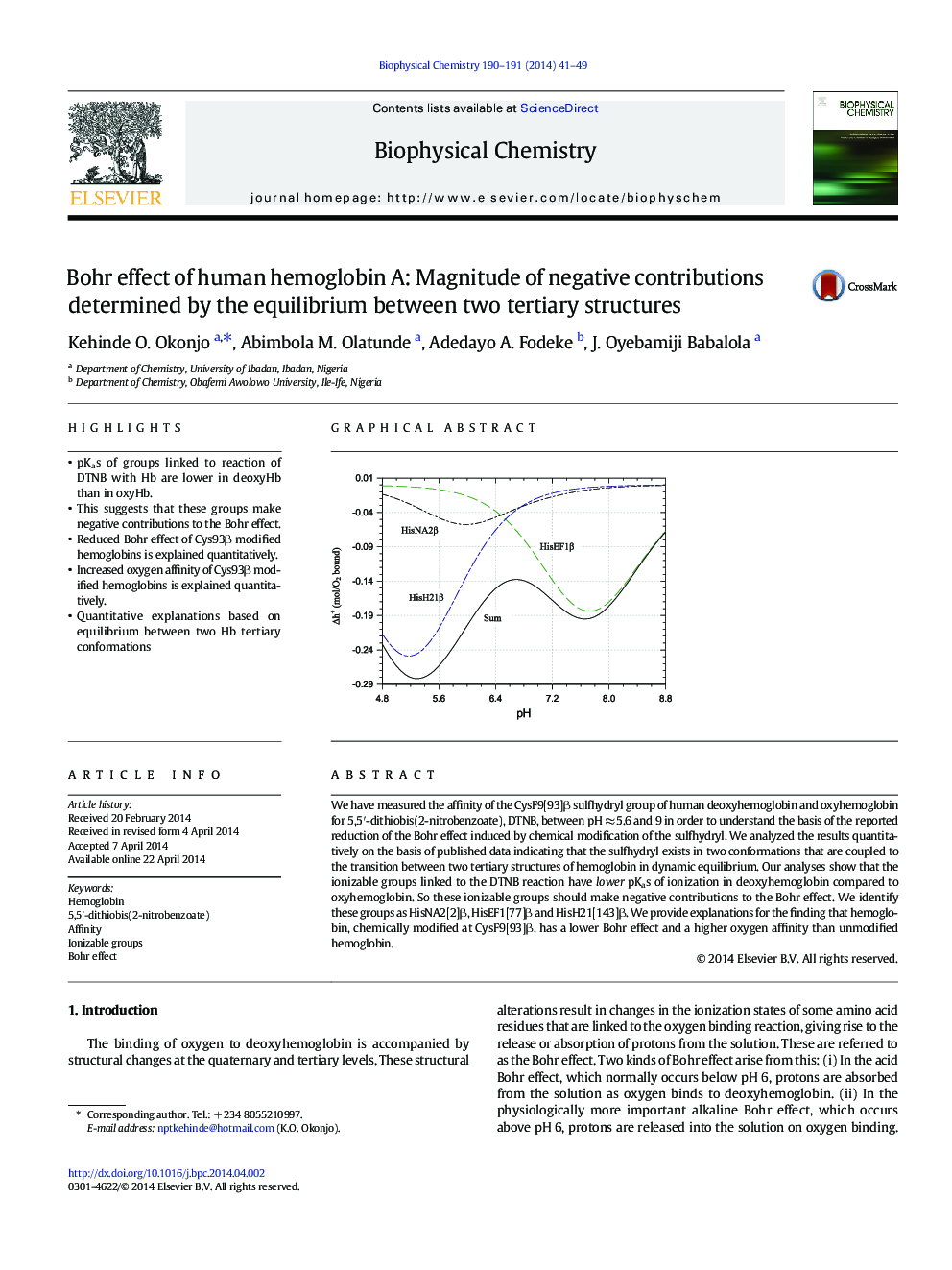| کد مقاله | کد نشریه | سال انتشار | مقاله انگلیسی | نسخه تمام متن |
|---|---|---|---|---|
| 5370952 | 1503925 | 2014 | 9 صفحه PDF | دانلود رایگان |

- pKas of groups linked to reaction of DTNB with Hb are lower in deoxyHb than in oxyHb.
- This suggests that these groups make negative contributions to the Bohr effect.
- Reduced Bohr effect of Cys93β modified hemoglobins is explained quantitatively.
- Increased oxygen affinity of Cys93β modified hemoglobins is explained quantitatively.
- Quantitative explanations based on equilibrium between two Hb tertiary conformations
We have measured the affinity of the CysF9[93]β sulfhydryl group of human deoxyhemoglobin and oxyhemoglobin for 5,5â²-dithiobis(2-nitrobenzoate), DTNB, between pH â 5.6 and 9 in order to understand the basis of the reported reduction of the Bohr effect induced by chemical modification of the sulfhydryl. We analyzed the results quantitatively on the basis of published data indicating that the sulfhydryl exists in two conformations that are coupled to the transition between two tertiary structures of hemoglobin in dynamic equilibrium. Our analyses show that the ionizable groups linked to the DTNB reaction have lower pKas of ionization in deoxyhemoglobin compared to oxyhemoglobin. So these ionizable groups should make negative contributions to the Bohr effect. We identify these groups as HisNA2[2]β, HisEF1[77]β and HisH21[143]β. We provide explanations for the finding that hemoglobin, chemically modified at CysF9[93]β, has a lower Bohr effect and a higher oxygen affinity than unmodified hemoglobin.
Journal: Biophysical Chemistry - Volumes 190â191, June 2014, Pages 41-49